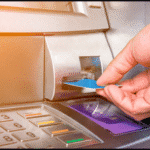How to Create a Business Bank Account in the UK (Without the Headache)
So, you’ve just launched your business (congrats!), or you’re finally ready to separate your side hustle cash from your personal account. Either way, you’re probably asking:
“Do I really need a business bank account?”
Short answer? If you’re running a limited company in the UK – yes, it’s a legal requirement. If you’re a sole trader, not legally required, but highly recommended (trust us, your future self will thank you at tax time).
The good news? Opening a business bank account in the UK has never been easier, especially with all the digital banks now in the game. But there are still a few things to know before diving in.
Let’s break it all down in plain English.
Why Create a Business Bank Account In The UK?
Even if you’re just starting out, having a dedicated business bank account can help you:
✅ Keep business and personal finances separate
✅ Look more professional to clients
✅ Track income and expenses easily
✅ Simplify your tax return
✅ Apply for loans or credit down the line
If you’re a limited company, HMRC expects you to treat your company as a separate legal entity, that includes using a separate bank account.
What Do You Need to Create a Business Bank Account in the UK?
Here’s what most UK banks (whether traditional or digital) will ask for:
✅ 1. Proof of identity
Such as a passport or driving licence.
✅ 2. Proof of address
This could be a recent utility bill, bank statement, or council tax letter.
✅ 3. Business details
-
Your company name and registration number (if you’re a limited company)
-
Nature of your business (what you do)
-
Estimated turnover
-
Website or social media (if available)
✅ 4. Proof of business address
Often the same as your registered office address, can be your home if you’re just starting.
💡 Tip: Some banks also do soft credit checks (just to verify your identity), but they don’t usually require a perfect credit score to open an account.
Your Options: High-Street vs Digital Banks
You’ve got two main routes when it comes to choosing your bank:
🏦 Traditional Banks
-
Barclays, NatWest, HSBC, Lloyds, etc.
-
Good for people who want in-branch services or plan to use business loans.
-
May take longer to set up and have more paperwork.
📱 Digital-First Banks
-
Starling Bank, Monzo Business, Tide, Revolut Business, ANNA
-
Quick online signup (sometimes within minutes!)
-
Great for freelancers, startups, and ecommerce sellers
-
App features like invoicing, expense tracking, and integrations with accounting software
⚖️ Comparison tip: Think about fees, features, and customer service. Some charge monthly, while others (like Starling) are free.
How Long Does It Take?
This varies depending on the bank. Here’s a general idea:
-
Digital banks: 10 minutes to a few hours
-
High-street banks: A few days to a couple of weeks (especially if you need a meeting)
Can You Create a Business Account as a Non-UK Resident?
Yes – but it’s a little trickier.
Some banks require UK residency, while others may accept international founders if:
-
Your company is UK-registered
-
You have a UK address for correspondence
-
You pass identity checks
Digital banks like Wise Business and Payoneer may be a good workaround if you’re overseas but doing business in the UK.
What About Sole Traders?
As a sole trader, you can use your personal account, but you really shouldn’t. It’s messy.
Many banks now offer dedicated sole trader accounts, with perks like:
-
Expense categorisation
-
Tax reminders
-
Invoicing tools
Banks like Monzo Business Lite, Starling, and Tide are perfect for this.
Final Thoughts: Keep It Simple, But Smart
Opening a business bank account in the UK is a smart early move, and with digital options, it doesn’t have to be a hassle.
Take a few minutes to compare your options, have your documents ready, and choose a bank that suits you, whether that’s old-school reliable or sleek and app-based.
✅ Quick Checklist Recap:
-
Choose your bank (digital or traditional?)
-
Gather your documents (ID, proof of address, business info)
-
Apply online or in-branch
-
Set up notifications and link your accounting tool
-
Celebrate: You’re officially more professional!
Our recommendation?
Revolut Bank and Wise are your safest options for now. They’re very flexible and have a lot of features that you will find really helpful as a small business owner in the UK.



